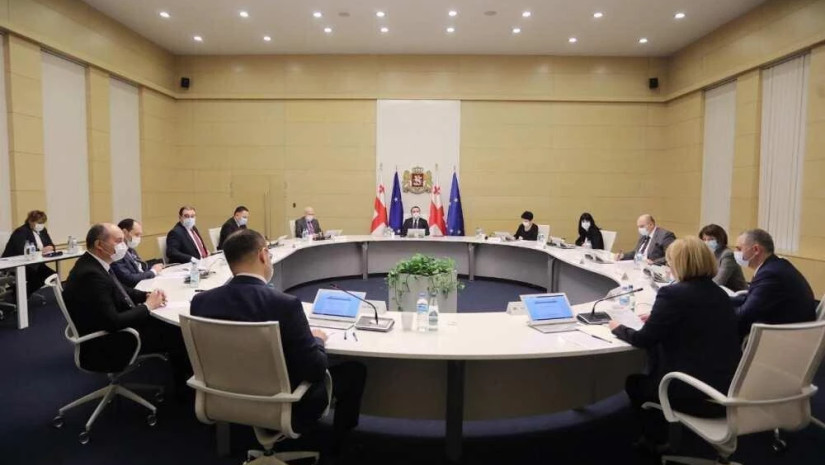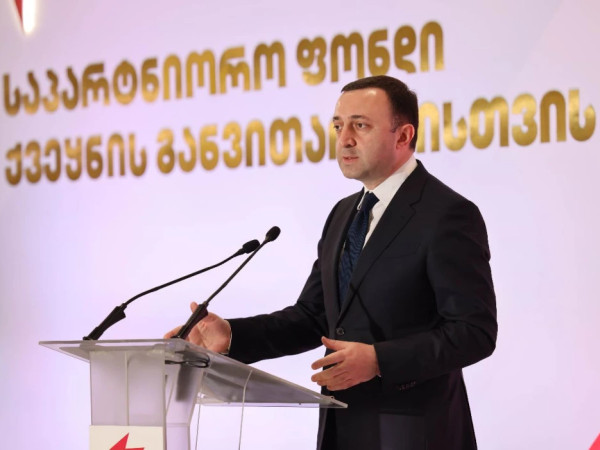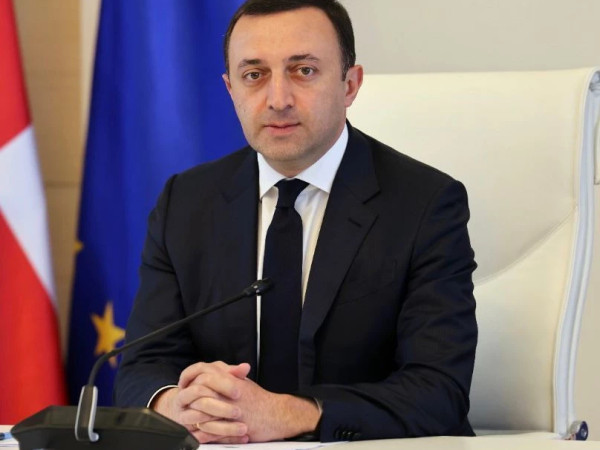The Economic Policy Research Centre (EPRC) has published a strategic vision for the development of Georgia's economy, which includes recommendations for accelerating the country's economic growth amid the pandemic and post-pandemic periods.
The report reads that the first task is alleviating tax, bureaucratic pressure and judiciary reform.
“Without doing that, the risk of investments continuing to flow out is high; under the global competition, it will be impossible to attract investors. In this respect, we deem it necessary to launch public discussions about the principles of memorandum signed by political parties on 13 March 2020. Moreover, for improving the damaged image of Georgia in the eyes of investors, it will be important to enhance possibilities of referring to international arbitration”, - the report reads.
SHORT-TERM (IN THE CURRENT YEAR):
•To reopen the economy in a timely manner; to move from a blanket, subversive and discretionary management to a truly targeted management and response; to choose time, place and speed for epidemiological interventions in the economy – move from a lock-down approach to a lockout (isolation) principle;
•To undertake consistent, predictable actions that will be based on measurable indicators, not on results of “a discussion at a meeting”, and that will give sufficient time to the private sector to adjust to them;
•To reject sectoral assistance, business support programs and subsidies, even be it short-term.25 A large number of private sector support programs implemented by the government cannot attain declared aims and often end up subsidizing large companies that are well-established on the market. The majority of programs (especially the measures oriented on price control) notably distort the operation of free market and nudge private sector towards such decisions that do not eventually serve the aim of enhancing public wellbeing. Furthermore, some programs with the declared goal to develop business, are, in fact, projects of social nature. Consequently, the failure to consider a social status of beneficiaries in them, creates an additional risk of misspending budget monies. To sum up, it is important to minimize the mentioned practice and in this difficult period for the Georgia economy, to implement business support programs only when a relevant implementation plan and evaluation system are in place; To start alleviating tax, bureaucratic/non-tax pressure and downsizing the government;26 the size of government is determined by the combination of tax and regulatory pressure. Direct and indirect regulatory expenditures make up a substantial share of business costs and there is a need to alleviate this pressure in a consistent manner and to the maximum extent possible, narrowing it down to only those regulations that represent direct international obligations of Georgia. Such regulations must be, in any case, interpreted in favor of the business. It is also important to reduce the tax pressure by three or four percentage points compared to the current one, with an emphasis placed on the decrease of income tax rate, in order to support employment and make the Georgian tax regime clearly more attractive than the tax regime of rival countries;
•The provision defining the term of validity of the Law of Georgia on Economic Freedom must be abolished and the law must have the status of permanent organic law.
MID-TERM (2022-2025):
•TO PRIVATIZE STATE-OWNED ENTERPRISES, including the Partnership Fund; (see unprofitability of state-owned enterprises in Annex #6); To achieve progress on FREE TRADE AGREEMENTS WITH THE USA;
•To devise a CONCRETE TOURISM RECOVERY PLAN because any forecast of economic growth depends on the revitalization of tourism; Taking into account the changes caused by Covid-19 to the tourism market, consumer behavior and preferences, etc., as well as most recent surveys, to revise defined aims and positioning, develop a strategic plan and allocate necessary resources for its implementation. Vaccination against Covid-19 is a necessary, but not sufficient component of this plan;
•GEORGIA AS A “PARKING” for many rich people. This will increase financial capital flows into Georgia. The court reform, attractive tax regime, simple and clear regulations and a safe environment are prerequisites for a “parking” concept.
LONG-TERM (2022-2028):
•EDUCATION REFORM that must improve Georgian citizens’ (a) competitiveness on the global employment market, and (b) potential to get employed in more productive sectors of the economy. As a result of this reform, the country must see the emergence of qualified workforce in various sectors of the economy, which, in turn, will increase attractiveness of Georgia for international investors. The education reform must be based on effective financial (decrease in institutional financing, use of voucher funding, equality of public and private institutions) and administrative autonomy (school councils, autonomy of universities), decentralization and principle of pluralism.
•ADMINISTRATIVE REFORM which must empower local self-governments by transferring more competences and finances to them. Introduction of broader political pluralism (multiparty municipal councils, different parties/coalition comprising the majority in various municipal councils) and addition of elective positions on the level of self-government must increase the accountability of local authority and decrease risks of corruption;
•URBANIZATION POLICY which must be expressed in the implementation of such key infrastructural projects that will facilitate growth of economic potential in regions, and move of labor force to productive sectors.















